What tea professionals need to start the week —
CBC reports pesticide residues greater than legal threshold… China tightens food safety rules leading tea gardens to reduce reliance on pesticides… “Be More Tea” generates plenty of social buzz… Harney & Sons introduce tea in K-Cup compatible capsules… Coffee Bean & Tea Leaf introduces tea granitas.
Popular Tea Brands Exceed Threshold for Pesticide Residue
The Canadian Broadcasting Corp. (CBC) aired an exclusive report backed by laboratory findings showing several popular tea brands contain pesticide residue exceeding the government mandated threshold.
Test results from the CBC’s Marketplace Consumer Watchdog Blog can be viewed here.
Responses from tea companies tested in the report can be viewed here.
Authorities stressed that minute traces of residue found in samples of Lipton, Tetley, Twinings and other popular brands were not a health risk.
“Health Canada reviewed the information provided by Marketplace and for the pesticides bifenthrin, imidacloprid, acetamiprid, chlorfenapyr, pyridaben, acephate, dicofol and monocrotophos determined that consumption of tea containing the residues listed does not pose a health risk based on the level of residues reported, expected frequency of exposure and contribution to overall diet. Moreover, a person would have to consume approximately 75 cups of tea per day over their entire lifetime to elicit an adverse health effect,” a spokesperson wrote to the CBC in a statement.
Canada’s Food Inspection Authority (CFIA) previously disclosed concerns about pesticide residue in 2009 and again in 2011 following tests of tea. Marketplace commissioned testing through an accredited lab to see if the teas exceeding Canada’s allowable limits were still in violation. In several instances that was the case.
Eight of the 10 brands sampled from grocery shelves in Toronto contained multiple chemicals and one brand contained residues from 22 different pesticides. Traces point to the use of endosulfan and monocrotophos, both banned by the United States and Canada as well as China and the European Union.
Brands purchased at grocers including Loblaws included Uncle Lee’s Legends of China, King Cole and Signal tea. Only Red Rose came back free of pesticide residues.
Environmental lawyer David Boyd told Marketplace “the presence of so many pesticides on a single product and so many products that exceed the maximum residue limits for pesticides, suggests that we’re seeing very poor agricultural practices in countries, which poses risk to the environment where these products are being grown; which pose risk to the farm workers who are growing these crops, and ultimately pose risk to the Canadians who are consuming these products.”
“The whole point of pesticides is that they’re chemically and biologically active in parts per million or parts per billion,” Boyd told the CBC. “Pesticides can have adverse effects at what are seemingly very small concentrations,” he said.
According to Boyd, these results “should raise a red flag for the regulators whose job is to protect the health and safety of Canadians in our environment.”
Here is a statement from the Tea Association of Canada:
“In Canada, the Tea Association continues to work with the Pest Management Regulatory Agency (PMRA), The Canadian Food Inspection Agency (CFIA) as well as the Food and Agriculture Organization of the United Nations’ Intergovernmental Group (IGG) on Tea, which is spearheading an agreement to harmonize pesticide standards, making tea production safer for consumers and protecting the livelihoods of millions of smallholder producers worldwide.
Consumers should continue to consume and enjoy the many varieties of tea for its health promoting and protective effects as well as its delicious taste. “There is now an overwhelming body of research from around the world indicating that drinking tea benefits human health,” says Dr. Carol Greenwood, Professor of Nutritional Sciences at the University of Toronto and a Senior Scientist at the Rotman Research Institute at Baycrest.”
Source: CBC
See: Uncovering the Truth: Is Tea Full of Pesticides?
China Tightens Pesticide Use in Tea Gardens
STiR Tea & Coffee International
Last November the Chinese Food and Drug Administration proposed a major revision to its food safety laws that will likely be approved by China’s congress late this year.
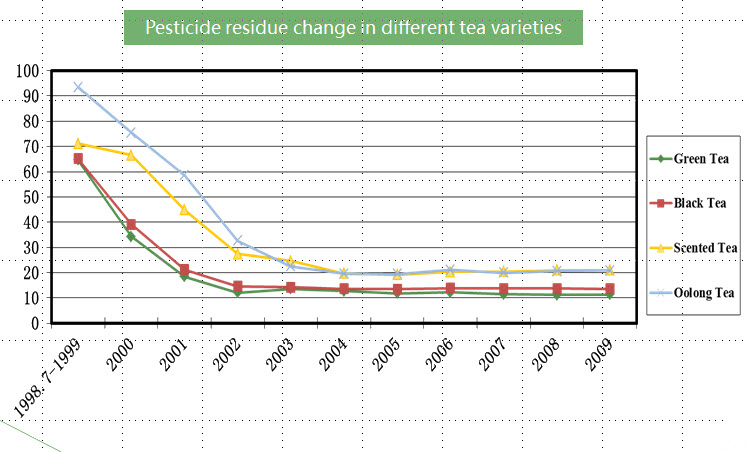
This is a high-priority initiative motivated by recent food safety scandals, according to the U.S.-China Health Products Association. It will clarify government oversight, increase regulatory obligations for food manufacturers and distributors; enhance controls over food products and increase penalties for non-compliance. Individuals sentenced for imprisonment will not be allowed to engage in food manufacturing or distribution in his/her lifetime. During the past three years more than 2,000 people have been prosecuted for food safety-related crimes in China.
The amendments continue a sweeping reform of the country’s food safety standards following a national scandal in 2008 involving melamine-tainted infant formula. That breech led to the execution of violators to make the point China was serious. Enactment will further efforts to curb pesticide use in tea gardens
By 2005 93.1% of tea products already had attained or exceed the Green Food standard, according to a presentation by Mao Limin, then chairman of the Zhejiang Tea Industry Chamber of Commerce. Limin told delegates at the 2011 North American Tea Conference that random inspection of tea had reached 100% at government owned gardens. In addition 267,000 acres (108,000 ha) of organic tea plantations had been certified organic and pesticide free.
The Green Food standard permits chemical pesticides and fertilizers but mandates residue levels meet export standards. The European Union and Japan set the highest thresholds but all trading partners have Maximum Residue Levels (MRLs). Organic certification in China is under the IFOAM rules with annual re-certification. Organic teas for export must comply with rules established by certifying bodies such as Swiss-based IMO, the British Soil Association, the USDA’s National Organic Program and JAS Japan.
Every pesticide approved for use has a required safe harvest interval, which is the time lapse between application of pesticides and harvest. In China preference is given to pesticides that are not easily dissolved in water. This reduces the portion that actually gets into the liquor. Most chemicals biodegrade leaving residue trapped in the spent leaf.
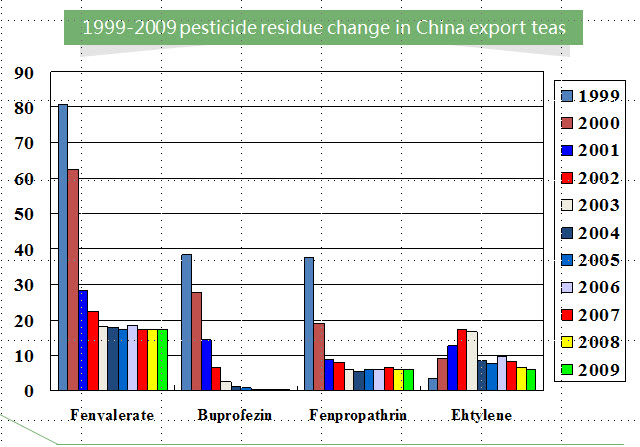
“It shouldn’t come as a surprise to anyone that there are pesticides used in commercial tea production, and that third-world countries are using some illegal ones, which are probably cheaper,” writes Austin Hodge, founder of Seven Cups Fine Chinese Tea in Tucson, Ariz.
“The boney finger always gets pointed at China, the great polluter, with pollution in Beijing as bad as when I was a kid in Los Angeles. It can all be explained in three words: cheap prices, commodity, and quantity. For the most part, bugs come in the summer. In the tropics, however, bugs are omnipresent. It’s always summer. It provides for a long growing season and an abundant yield. It is a broader truth that if you want cheap tea and cheap food, pesticides come along with the price,” he wrote in in a T Ching post last May.
In April 2012 Greenpeace issued a report: Pesticides: Hidden Ingredients in Chinese Tea following an investigation that showed chemical residue from pesticide. The organization sent samples purchased from well-known tea companies to an accredited third-party laboratory that found residues of various types on all 18 of the samples submitted. A total of 29 different pesticides were detected, several known to cause harm. Six samples contained more than 10 different pesticides. Twelve samples showed traces of banned pesticides including methomyul, endosulfan and fenvalerate which are known to impair fertility, harm unborn children and cause heritable genetic damage.
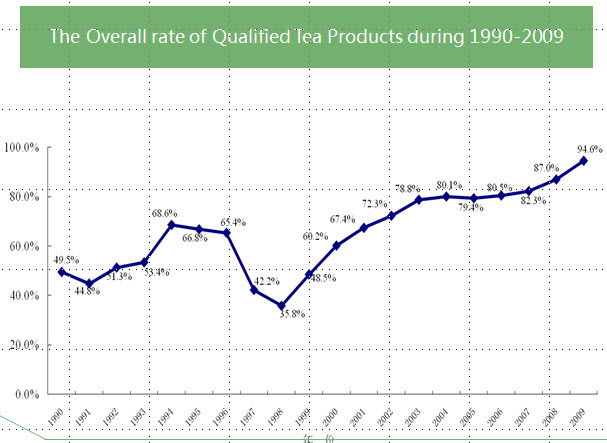
What the report did not state is that most of the residue was within established standards.
“If you take the considerable trouble of comparing the Greenpeace data with EU pesticide limits for the 28 chemicals mentioned then 5 of the 18 teas accused actually fall below the MRL limits for all 28 and two teas exceed by a trace level of 1 mg/kg on two chemicals,” writes Nigel Melican, founder of TeaCraft, a widely acclaimed British tea consultancy. He goes on to say: “This leaves 11 teas non-compliant for one or more pesticides, were they to be sold in the EU.”
The sampled teas were from local Chinese vendors and not subject to more stringent export rules.
“Nowhere in the report does Greenpeace China suggest that the non-compliant teas are representative of China teas presented for export – but commentators in the USA and UK have erroneously and immediately jumped to this conclusion,” he writes.
More troubling is the CBC investigation of tea for sale in Canada.
Source: STiR Tea & Coffee Industry International, March-April 2014.
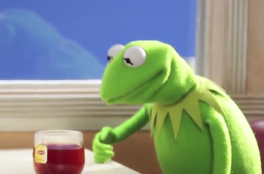 “Be More Tea” Generates Great Buzz
“Be More Tea” Generates Great Buzz
Lipton’s $40 million global campaign promoting a relaxed lifestyle message is riding high on social buzz following the debut of Kermit the Frog as the brand’s new icon of calm.
The TV audience of 43 million watching the Academy Awards and a well prepared social team capitalizing on the Oscar presentations generated 3.85 million views of the ad on YouTube in the past week. The commercial depicts a horde of “Animal” puppets driving cabs, shouting and racing about New York City set the scene for the thoughtful frog who is captured placidly walking amid the mayhem doing good turns and going with the flow as he is bumped and jostled about.
“Be More Tea” is Unilever’s first global campaign to elevate its Yellow Label brand and Kermit is the epitome of mindfulness as he sips his way through the antics of Miss Piggy and pals. The promotion is tied to a Disney movie starring the Muppets.
Kermit will be the face of Lipton in North America and Europe where the puppets are well known but “Be More Tea” is a slogan that will be translated into many languages in advertisements designed to create single global positioning for the world’s leading brand of tea.
“We live in a busy world. It’s easy to slip into a routine with our heads down, moving from one place or obligation to the next. Lipton wants to inspire consumers to ‘look up’, take in all that life has to offer and enjoy what you may have otherwise missed,” said Alfie Vivian, vice president of refreshments for Unilever. “This is what ‘Be More Tea’ means to Lipton and the philosophy we will bring to life in our new national ad campaign starring the Muppets.”
Alessandra Bellini, VP-brand development for Unilever Refreshments, told Ad Age that Unilever is doubling Lipton marketing spending to more than $40 million this year compared to last. The campaign will run four weeks.
“The campaign backs both Lipton hot tea and iced tea. While Lipton has had global campaigns in the past for ready-to-drink tea, this is the first global effort behind the entire brand lineup,” Ms. Bellini told Ad Age. “Lipton — in both cold and hot forms — trails only Coke in sales among global beverage brands,” she added.
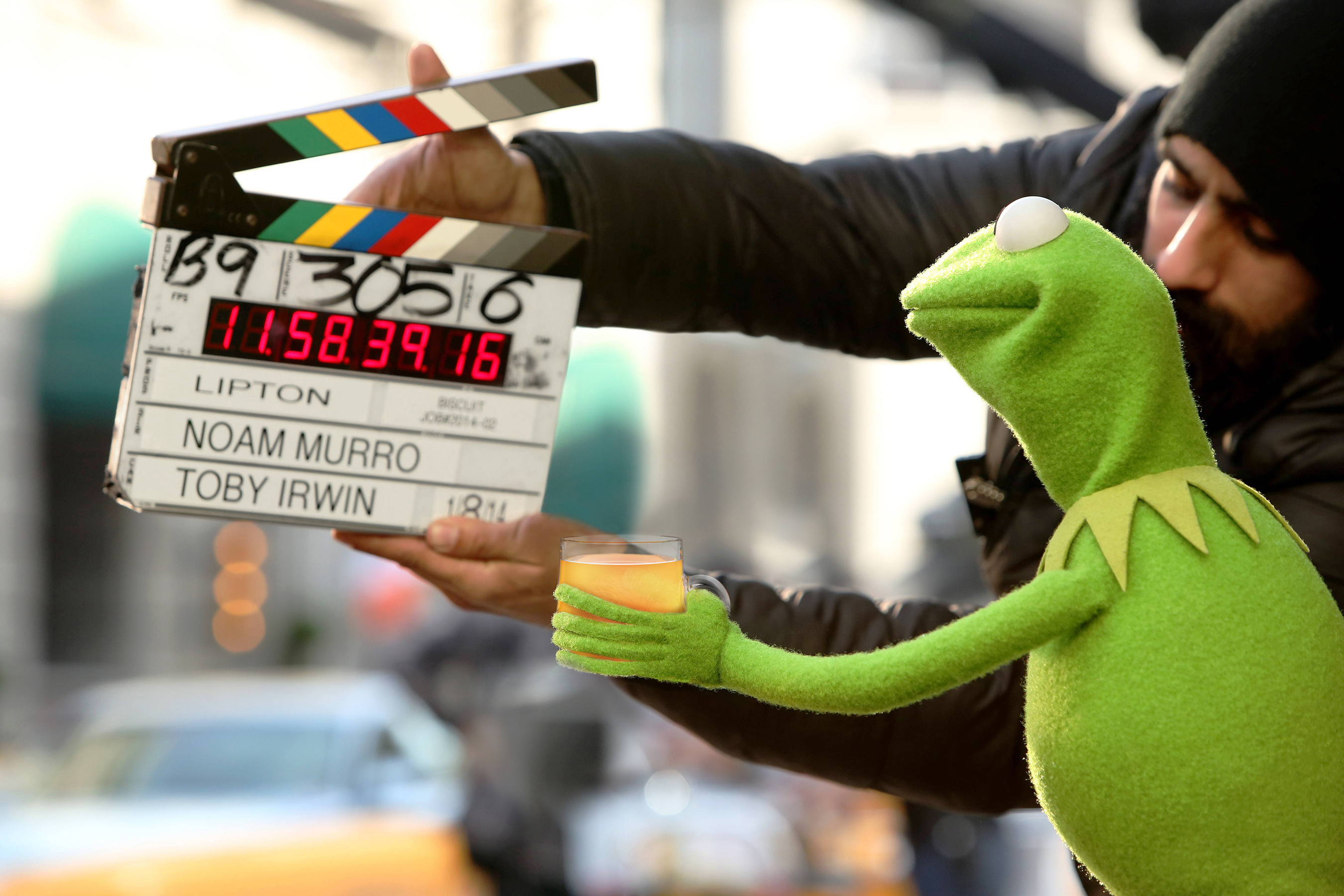 “Making movies and dating Miss Piggy can be stressful – especially the dating part. But I always try to stay cool and look on the bright side,” said Kermit the Frog. “That’s what this Lipton campaign is all about. In a world filled with high-stress wild-in-the-street types like Animal, you have to take time to enjoy life and ‘Be More Tea.’”
“Making movies and dating Miss Piggy can be stressful – especially the dating part. But I always try to stay cool and look on the bright side,” said Kermit the Frog. “That’s what this Lipton campaign is all about. In a world filled with high-stress wild-in-the-street types like Animal, you have to take time to enjoy life and ‘Be More Tea.’”
Click here to see the ad.
Click here to see a 90-second behind the scenes video with Kermit back stage preparing for his role in the new Disney Movie “Muppets Most Wanted” scheduled for release March 21.
Harney & Sons Tea Capsules
Harney & Sons Fine Teas introduced a line of Keurig-compatible single-serve teas this week.
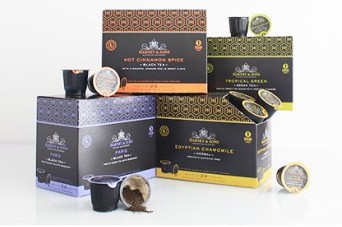 Tea drinkers can now enjoy Harney & Son’s teas with the convenience of the individual tea capsules that are 98% recyclable. Four blends from the company’s classics collection are available in 24-count boxes: Paris, Egyptian, Chamomile, Hot Cinnamon Spice and Tropical Green, as well as four blends from their HT Collection in 16-count boxes: Green Tea with Coconut, Earl Grey, Peppermint Herbal and Hot Cinnamon Sunset.
Tea drinkers can now enjoy Harney & Son’s teas with the convenience of the individual tea capsules that are 98% recyclable. Four blends from the company’s classics collection are available in 24-count boxes: Paris, Egyptian, Chamomile, Hot Cinnamon Spice and Tropical Green, as well as four blends from their HT Collection in 16-count boxes: Green Tea with Coconut, Earl Grey, Peppermint Herbal and Hot Cinnamon Sunset.
The Keurig® compatible capsules deliver the same great flavor and aroma customers have come to expect, according to the company which is now celebrating its 30th Anniversary. The Cool, Peel and Recycle technology allows tea drinkers to easily peel off the capsule after cooling, and recycle the capsule filter and spent tea. Harney & Sons continues to provide new and innovative ways to enjoy their classic tea, said founder John Harney.
Three generations of the Harney family oversee a venture that still sources, blends and packages their own products from start to finish. Harney’s small home-run business in Salisbury, Conn., has grown into a global operation with more than 170 employees at its headquarters in Millerton, New York. The company fills 90,000 square feet of warehouse space and has a new bottling plant under construction.
Capsules are available for purchase at www.harney.com.
CBTL Introduces Tea Granita
Cold tea beverages, fruit and tea fusion drinks and chilled herbals are doing well in the marketplace.
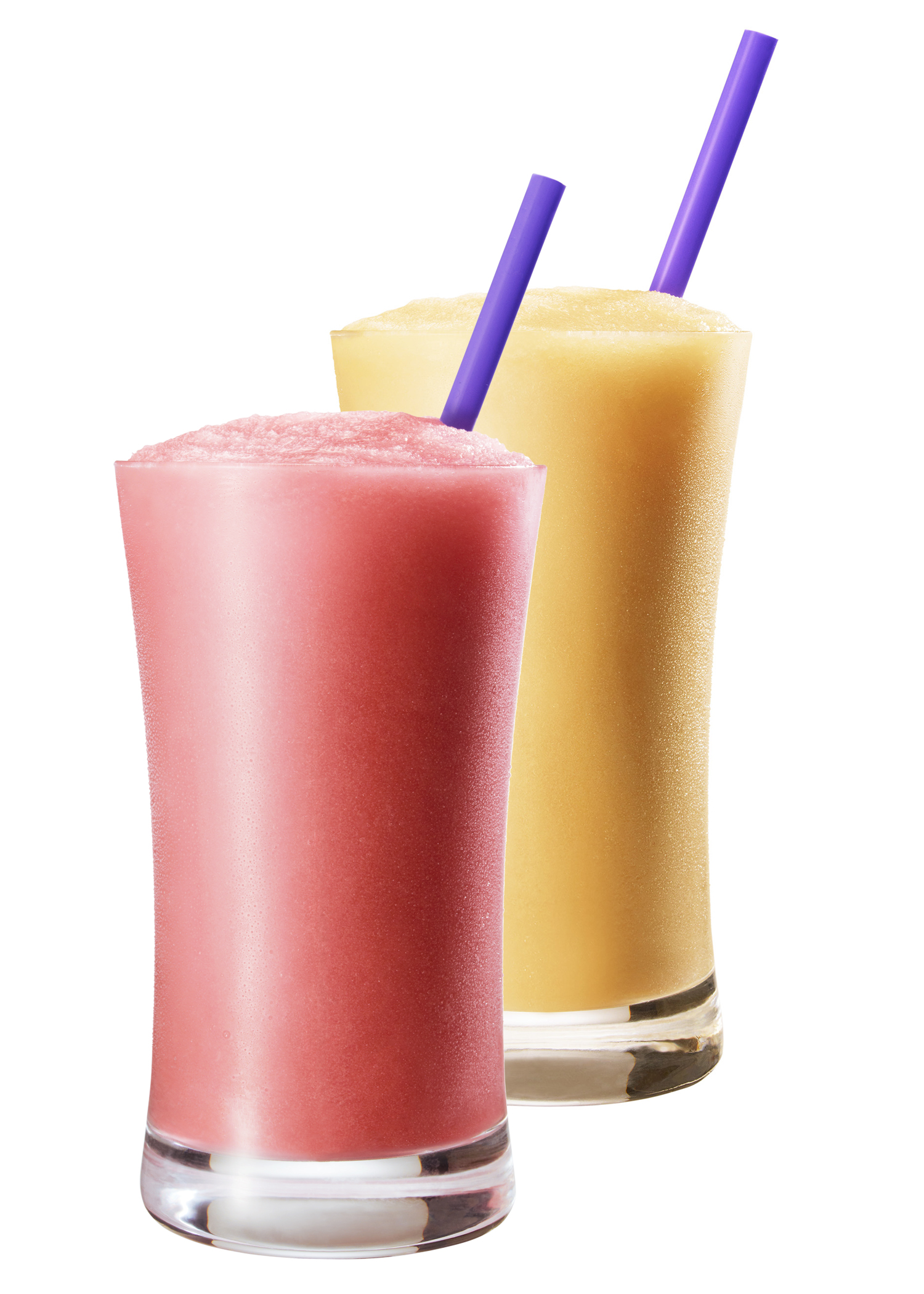 Last week The Coffee Bean & Tea Leaf® introduced Tea Granitas to the lineup, a new concept in the beverage category.
Last week The Coffee Bean & Tea Leaf® introduced Tea Granitas to the lineup, a new concept in the beverage category.
“Borrowing inspiration from the Italian granita dessert – made of fruit and ice – the Tea Granitas are a light, refreshing balance of premium iced teas and trending fruit flavors, and are blended with ice,” according to the company.
The Passion Fruit Tea Granita blends Assam Black Tea and the bright, bold flavors of passion fruit, yielding a slightly tart finish. The Pear Berry Tea Granita combines the company’s popular Swedish Berries fruit infusion with notes of pear, creating a delicious caffeine-free beverage.
“The Tea Granita is a truly unique beverage that’s perfect to launch in the spring,” says CBTL President and CEO, John Dawson. “It brings a delicious twist to iced tea refreshment and is the latest in a long line of tea beverage innovations from The Coffee Bean & Tea Leaf®. Our customers know us for our signature tea beverages, such as the Chai Tea Latte and Matcha Green Tea Ice Blended® drink, and we believe the Tea Granita is another delicious beverage our customers will love sip after sip.”
Source: Coffee Bean & Tea Leaf
— — —
Tea Biz serves a core audience of beverage professionals in the belief that insightful journalism informs business decision making. Tea Biz reports what matters along the entire supply chain, emphasizing trustworthy sources and sound market research while discarding fluff and ignoring puffery.
Tea Biz posts are available to use in your company newsletter or website. Purchase reprint and distribution rights for single articles or commission original content. Click here for details.


